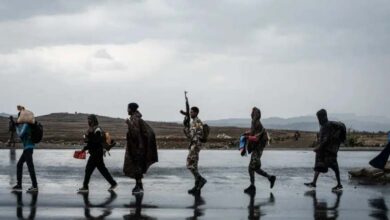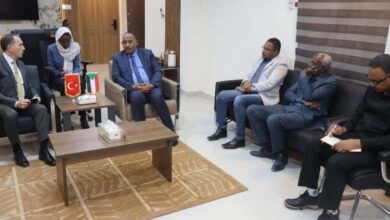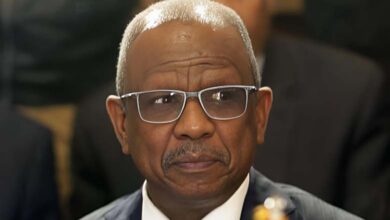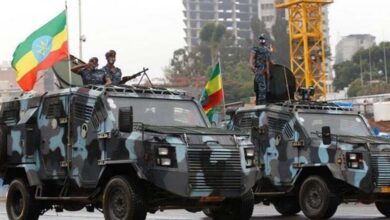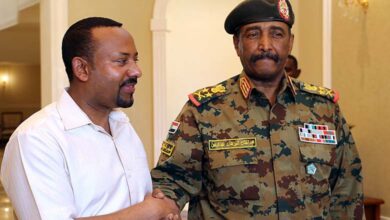The Sudanese Army in El-Fasher: When the Guardian Becomes Executioner
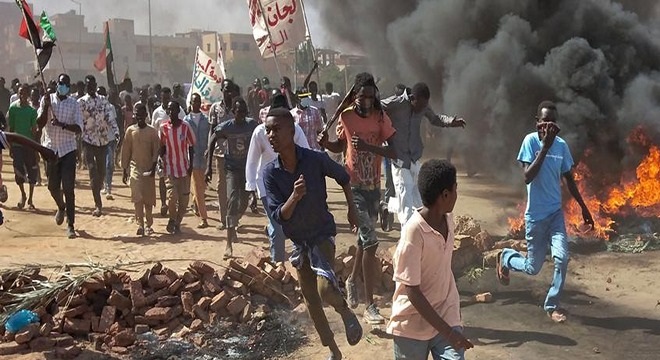
In Sudan, the line between truth and propaganda has dissolved, between those who claim to “protect the nation” and those who turn it into an open graveyard.
What took place in El-Fasher was not merely a military clash between two rival forces but the embodiment of a profound moral collapse within the Sudanese military institution, now the most dangerous armed entity on the African continent.
The army that withdrew from El-Fasher left behind civilian corpses and bloodstains on the walls of homes—a scene unworthy of any national army. Eyewitnesses confirmed that the killings began before the arrival of the Rapid Support Forces, with retreating soldiers carrying out massacres as revenge against residents after battlefield losses, then rushing to blame their opponents to whitewash their dark record. Thus, the army transformed from “shield of the nation” into killer in the nation’s name, from an official institution into an ideological militia justifying crime under the guise of “legitimacy.”
Al-Burhan and the search for symbolic victory
The Sudanese army, led by Abdel Fattah al-Burhan, is mired in a crisis of identity and legitimacy.
After two years of internal war, it has achieved no decisive victory and failed to preserve the country’s unity. Al-Burhan now seeks a symbolic triumph at any cost—even through massacres of civilians—to prove his army’s existence. This is the logic of defeated regimes: when the battle on the ground is lost, the war on truth begins.
Under al-Burhan’s leadership, the army has become more ideological machine than national institution. The alliance between senior officers and remnants of the Islamist movement—long dominant under al-Bashir—has produced a poisoned doctrine of hatred and revenge. In this mindset, the enemy shifts from “rebel militia” to “suspect citizen,” and cities become arenas for collective retribution.
From Wad Madani to El-Fasher: repeating the crime
The massacres in El-Fasher are not isolated but part of a long history of crimes committed by the army in other cities.
In Wad Madani, the army carried out killings, arson, and torture against civilians, including workers from South Sudan, without accountability.
In Darfur, Omdurman, and Khartoum, evidence has emerged of its use of internationally banned weapons, including chemical agents against civilians.
All of this unfolds amid troubling international silence and a complicit media narrative reducing the tragedy to a mere “domestic conflict” instead of naming it for what it is: fully-fledged war crimes.
Media: the silent battlefield
The Sudanese army understood early that controlling the narrative was more crucial than controlling territory. While crimes were committed on the ground, a vast media machine worked to falsify facts, backed by regional actors who fear the consequences of the army’s collapse.
Thus, the executioner is cast as savior, the perpetrator as victim, while independent voices exposing the truth are silenced.
Yet this strategy is short-lived: survivors’ testimonies are reaching the world, and human rights organizations are gathering evidence. The information war waged by the army is nothing more than an attempt to delay accountability, for truth—however late—endures longer than bullets.
The army as a geopolitical threat
The Sudanese army can no longer be seen as merely a national force; it has become a regional geopolitical threat.
Fueled by religious ideology and a thirst for vengeance, this armed entity risks becoming a new hub of extremism in Africa, blending Brotherhood thought with modern methods of war.
What truly differentiates al-Burhan’s army from a radical group? The rhetoric is the same, the practices identical: fighting in the name of religion, legitimizing murder in the name of “homeland,” and displaying utter contempt for human life.
Sudan between two armies, without a state
Sudan today is trapped between two armies, with civilians as the sole victims.
The regular army has lost its national character, and the Rapid Support Forces lack any state-building vision. In this vacuum, the Sudanese state is disintegrating day by day, with cities carved into rival zones of influence ruled only by the gun.
The greater crime lies not only with those who kill but also with those who remain silent—media, organizations, or states.
What is happening in El-Fasher is not an isolated event but the moral collapse of an entire state. The army that was supposed to defend land and honor now desecrates both with the blood of innocents.
If the crimes of El-Fasher, Wad Madani, and Darfur are not investigated, Sudan will become Africa’s latest laboratory of impunity.
In the end, al-Burhan may win a propaganda battle, but he has lost something greater: the honor of the Sudanese army itself.
For when the guardian becomes the executioner, the homeland no longer needs an external enemy.


